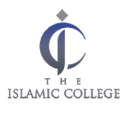ISD324 – Islamic Education and Teacher Training
Course Overview
This module aims at introducing students to the principles that underpin the Islamic concept of education and learning. The module allows students to gain a comprehensive understanding of how effective and inclusive teaching practice within a learning environment enables learners to learn in a constructive and empowering manner. Thus it is ideal for students wishing to pursue careers in education. However, it should be noted that the module does not confer Qualified Teacher Status. The module will provide students with an insight into modern theories of learning developed by Muslim and non-Muslim educationalists.
Module Info
- Syllabus
- Outcomes
- Strategy
- Material
sYLLABUS
- The Qur’an and Sunnah as foundations of Islamic knowledge and learning
- The Islamic concept of education and its spiritual dimensions
- The role of madrasas and institutions of Islamic learning in Muslim minority countries
- Theories and principles for planning and enabling learning within the madrasa
- Reflective practice and diversity within Islamic education
- Learning styles and the inclusive practice
- Classroom management techniques
- Teaching development and assessment techniques
- Modern theories of learning
- Effective lesson planning and schemes of work
- Learning resources and Islamic education
- Health, safety, professional practice and learner protection
Learning Outcomes
Knowledge
On completion of this module, the successful student will be able to:
- Compare and contrast and critique approaches to education and learning. (A1, A5)
- Critically examine how the Qur’an and Sunnah help to construct Islam’s educative approach while evaluating modern theories of learning developed by Muslim and non-Muslim educationalists.. (A2, A5, B2)
Skills
This module will call for the successful student to:
- Select and apply appropriate assessment techniques, and plan and develop appropriate use library and other resources in order to enrich teaching and enhance learning. (B2, B6, C4, C5, D2, D5)
- Develop reflective learning by expressing considered approaches to foster personal growth as a teacher and individual, and in relation to others. (C3, D1)
Learning, Teaching and Assessment Strategy
Lectures and students’ reading communicate much of the subject matter. Seminars, presentations, class discussions, and the assignments encourage analysis and critical reflection.
Assessment Mode
Formative Assessment:
Formative assessment involves an in-depth search and review of publications related to the specific paper will be required. Students are required to see the module leader regularly in tutorials to receive formative feedback on their performance and support with their portfolio work. Tutorial sessions provide students an opportunity to gain guidance and help required to enhance their academic performance and tackle any possible difficulties that may affect their portfolio work. Each portfolio assignment is entitled to formative feedback from the lecturer before the 9th learning week. Additionally, students will also receive formative feedback on their presentations after completing them, which will help them improve future performance. They may also hand in their PowerPoint slides to the lecturer for guidance and feedback from student-led discussion.
Summative Assessment:
Summative assessment is by presentation and portfolio. The portfolio is based on a portfolio of two assignments of about 500 words each (Outcomes 1,2). The 20 minute presentation will require students to convey their research on an agreed area of the course in an effective manner, and should consist of roughly 10 PowerPoint slides (Outcome 3, 4).
Assessment Weighting
Portfolio: 60%
Presentation: 40%
Learning Material
Core readings
- Hefner, R.W. and Zaman, M.Q. (2007). Schooling Islam: The Culture and Politics of Modern Muslim Education. Princeton: Princeton University Press.
- Mutahhari, M. (2011). Training and Education in Islam. London: ICAS Press.
- Thaine, C (2010) Teacher Training Essentials, Cambridge University Press


